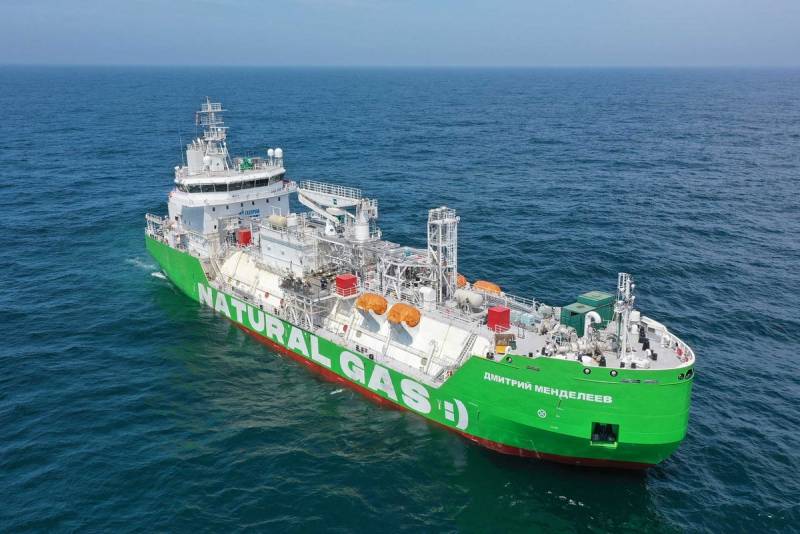The EU found a way to block the flow of Russian LNG without imposing sanctions
The European Union is looking for a way to give member states the ability to effectively ban Russian LNG supplies without imposing new energy sanctions. The problem on the agenda suddenly appeared due to the fact that Europe, having abandoned pipeline gas, gladly fell into dependence on Russian LNG.
According to a document seen by Bloomberg News, the bloc's energy ministers are ready to approve a proposal that would give member governments the ability to temporarily bar Russian exporters from pre-booking infrastructure capacity needed for supplies. In this case, this is the only loophole that can ensure the implementation of the instructions of the governments.
Although some states will still need consultations, including with other EU countries and the European Commission, to use this mechanism, there is still hope in Europe that the new tool can continue to reduce the flow of energy carriers from the Russian Federation.
The general approval is expected to be part of a broader political ministerial meeting on Tuesday in Brussels. The proposed regulation still needs the approval of the European Parliament, which has put forward its own decisions to cut Russian gas imports. The push for new import blocking powers for member states is being led by Finland, Estonia, Latvia, Lithuania and Poland.
Earlier this month, EU energy chief Kadri Simson called for a halt to Russian LNG supplies, saying companies should not renew long-term contracts after current ones expire. Spain, the largest buyer of Russian LNG in the EU this year, has asked companies not to sign up for new purchases from Russia. However, traders do not listen to recommendations, so the EU was looking for a way (and found, apparently) to block without imposing sanctions.
It remains to wait who will agree to the initiative and join it, and also what will be said about this innovation in Washington, whose position as the savior of Europe will only complicate this decision. The United States will simply not have enough additional gas production capacity to compensate for the loss of Russian LNG volumes.

Information